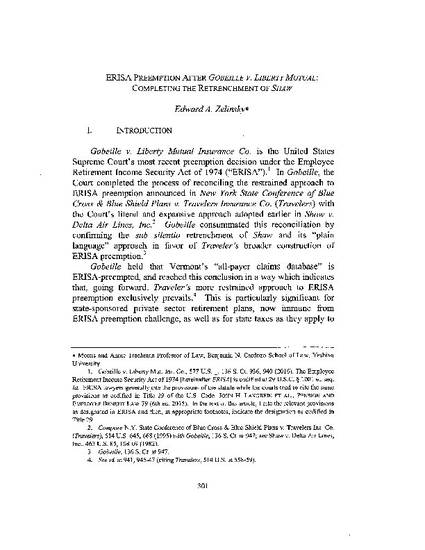
Gobeille v. Liberty Mutual Insurance Co. is the U.S. Supreme Court’s most recent preemption decision under the Employee Retirement Income Security Act of 1974 (ERISA). In Gobeille, the Court completed the process of reconciling the restrained approach to ERISA preemption announced in New York State Conference of Blue Cross & Blue Shield Plans v. Travelers Insurance Co. with the Court’s literal and expansive approach adopted earlier in Shaw v. Delta Air Lines, Inc. Gobeille consummated this reconciliation by confirming the sub silentio retrenchment of Shaw and its “plain language” approach in favor of Traveler’s broader construction of ERISA preemption.
Gobeille held that Vermont’s “all-payer claims database” is ERISA-preempted. The Court reached this conclusion in a way which indicates that, going forward, Traveler’s more restrained approach to ERISA preemption exclusively prevails. This is particularly significant for state-sponsored private sector retirement plans, now immune from ERISA preemption challenge, as well as for state taxes as they apply to the investment trusts of ERISA-regulated retirement plans.
- Constitutional Law,
- Jurisdiction,
- Jurisprudence,
- Courts
Available at: http://works.bepress.com/edward-zelinsky/389/
